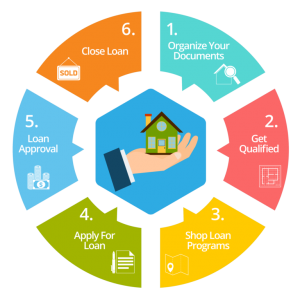Marketing Your Home
Open Houses
There are two types:
- An agent’s open house, where sales representatives from the listing company will be invited to view your house. If you have signed an MLS® agreement, other REALTORS may also be invited. Remember, each of these REALTORS may have a prospective buyer.
- A public open house, where members of the public are invited to walk through your home and have a look. It’s an efficient way to show your home to many potential buyers at once. The listing agent will act as host, answering any questions.
You and your listing agent will pick the time and date for an open house. In order to give the agent access to your home, you may wish to keep a key at his or her office, or in a lockbox. It’s a good idea to:
- leave before the open house begins and to return after it ends
- put away any valuables in secure locations
But you may wish to stay behind. If you do stay, be sure to:
- keep out of the way
- don’t make excuses — this only draws attention to the house’s faults
- turn off any TVs or radios to let the agent and the buyer talk in peace
- if you have a dog, put it outside or otherwise restrain it… pets intimidate some people
- politely direct to the listing agent anyone wishing to discuss with you terms or price
Needless to say, clean counts with open houses. A general rule is that clean, uncluttered and well-lit spaces look larger and more attractive. People will naturally want to buy a house that is clean and well cared for.
Other Tools
Your agent also has other tools at his or her disposal:
The “For Sale” sign on your front lawn. This is how most buyers find homes. Your lawn sign is a “silent salesperson,” constantly telling everyone that your home is for sale.
Advertising your home in the real estate section of your local newspaper or in your local real estate board publication. Even though your home may not be shown in every issue, you can count on your agent to always suggest your property to buyers who are looking for a home like yours.
Renewing the Listing
Sometimes a home doesn’t sell right away. Avoid the urge to pull your home off the market… be persistent! Generally, there are three reasons why a home may not sell as fast as others:
– location
– condition
– price
Naturally, you can’t change your home’s location, but you can fix the condition of your home and you can, of course, adjust your price. Throughout the listing process, you need to be constantly comparing your asking price against those of similar properties in your area. It may be time to adjust the price of your home.
Review your selling strategy regularly with your listing agent:
Is your house being shown regularly?
Are you receiving the feedback from prospective buyers?
Are you in touch with the marketplace?
Is your property competing well? If not, what else can you do?
The Offer
The offer outlines:
– how much the buyer is willing to pay;
– when the buyer would like to take possession;
– any conditions attached to the offer; and,
– when the offer expires.
As an act of good faith, the buyer will make a deposit with the offer. A good deposit will often show the buyer’s sincerity.
Along with this, the buyer may:
- attempt to “low ball” you, and submit an offer much lower than your asking price
- attach conditions to the offer
You don’t have to accept the offer. You may wish to make a counter offer that comes partway to meeting the offer’s conditions. The counter offer is one more step along the way to negotiating the final terms and conditions of the sale.
The offer, once signed by everyone, is a binding contract. Make sure you understand and agree to all of the terms in the document. You may want to have it reviewed by your lawyer before signing.
Before Closing
If necessary, and if the buyer makes it a condition of sale, you may be asked to:
- provide a current survey, or a “real property report,” showing the location of the house is on the property owned by you and that there are no encroachments
- prove that you have title to the property (the buyer’s lawyer will check this out when he or she conducts a title search to see if there are any liens on the property, easements, rights of way or height restrictions)
- provide a health inspection certificate, if there is a septic system, stating the system meets local standards
The buyer may also make the purchase conditional on an inspection by a qualified engineer. You may be asked by the buyer to cover this cost.
Closing the Sale
On or before closing day, this is what happens:
- the lawyers representing you and the buyer will set up a trust account for the money coming from the sale and will pay off any mortgages you owe on the property. After these are paid, you will receive any money you have coming from the sale
- you must deliver the property deed or transfer documents, mortgage details and keys to your lawyer. Your lawyer will register the mortgage discharge and transfer the deed at closing
- your lawyer will ensure that you receive compensation for prepaid expenses such as, property taxes, electrical or gas bills, or if applicable, any heating oil left in your tank
Some lenders will make it possible for your mortgage to be portable, so you can take your mortgage with you when you move to your new home.
Finally, two things to remember:
-
- the capital gain from selling your home is tax exempt. This means the profits from selling your home are not taxable.
- protect your investment and the deal by keeping your insurance policies in force up until the date of closing.
Here, your responsibilities under the listing agreement end. You’ll have paid your listing agent the agreed-upon compensation. This can be done by your lawyer who can arrange the payment from the proceeds of the sale.






